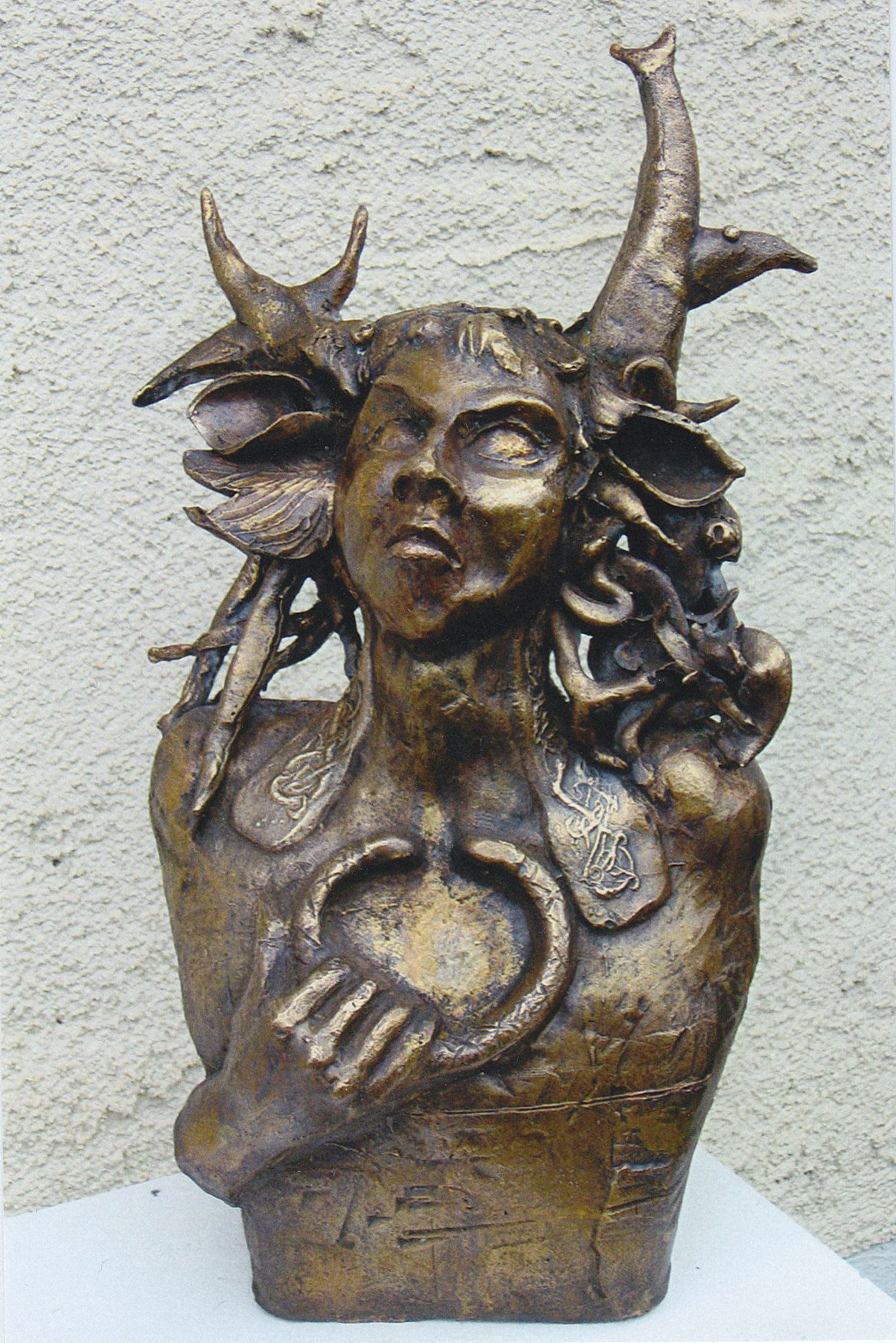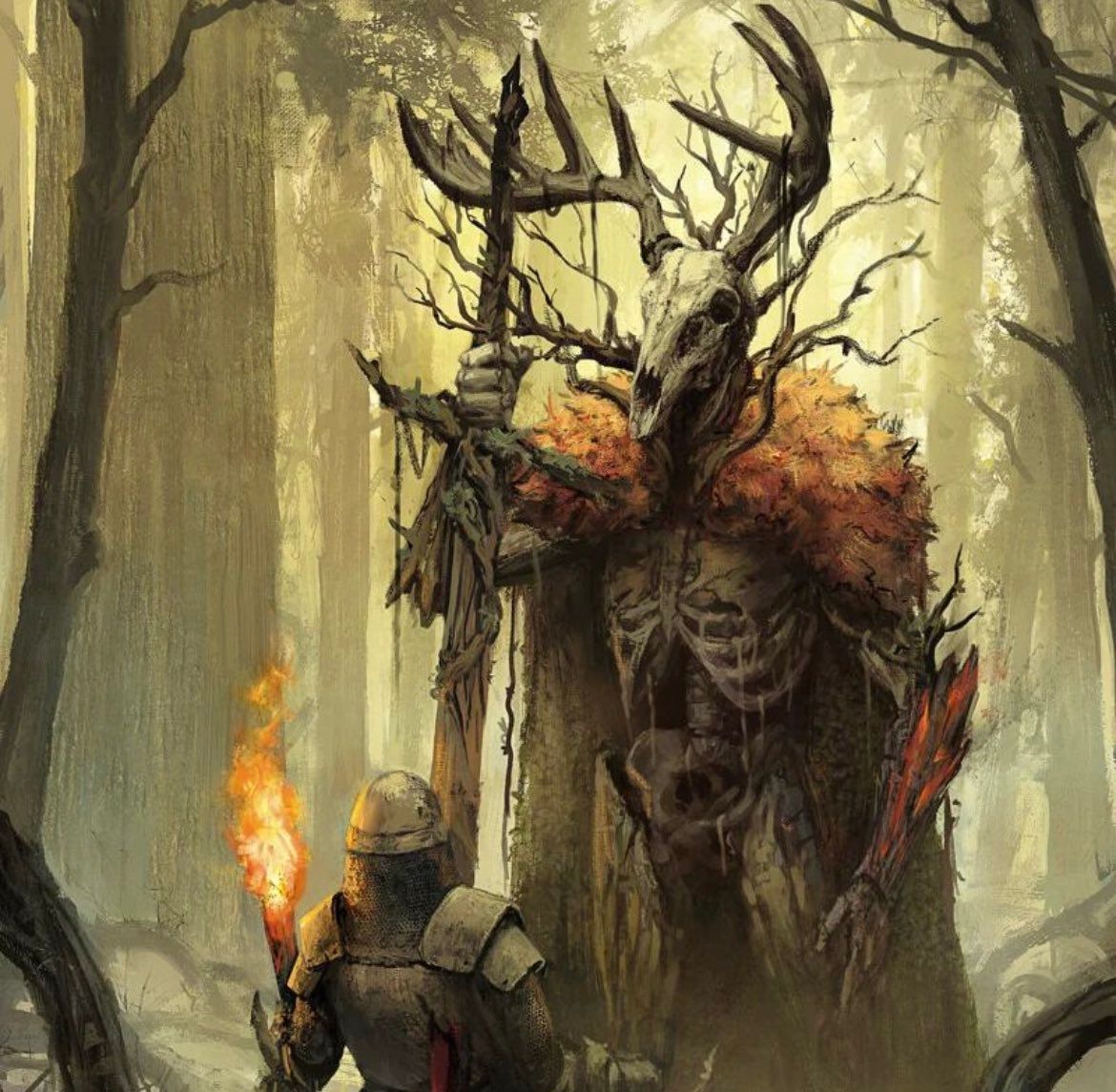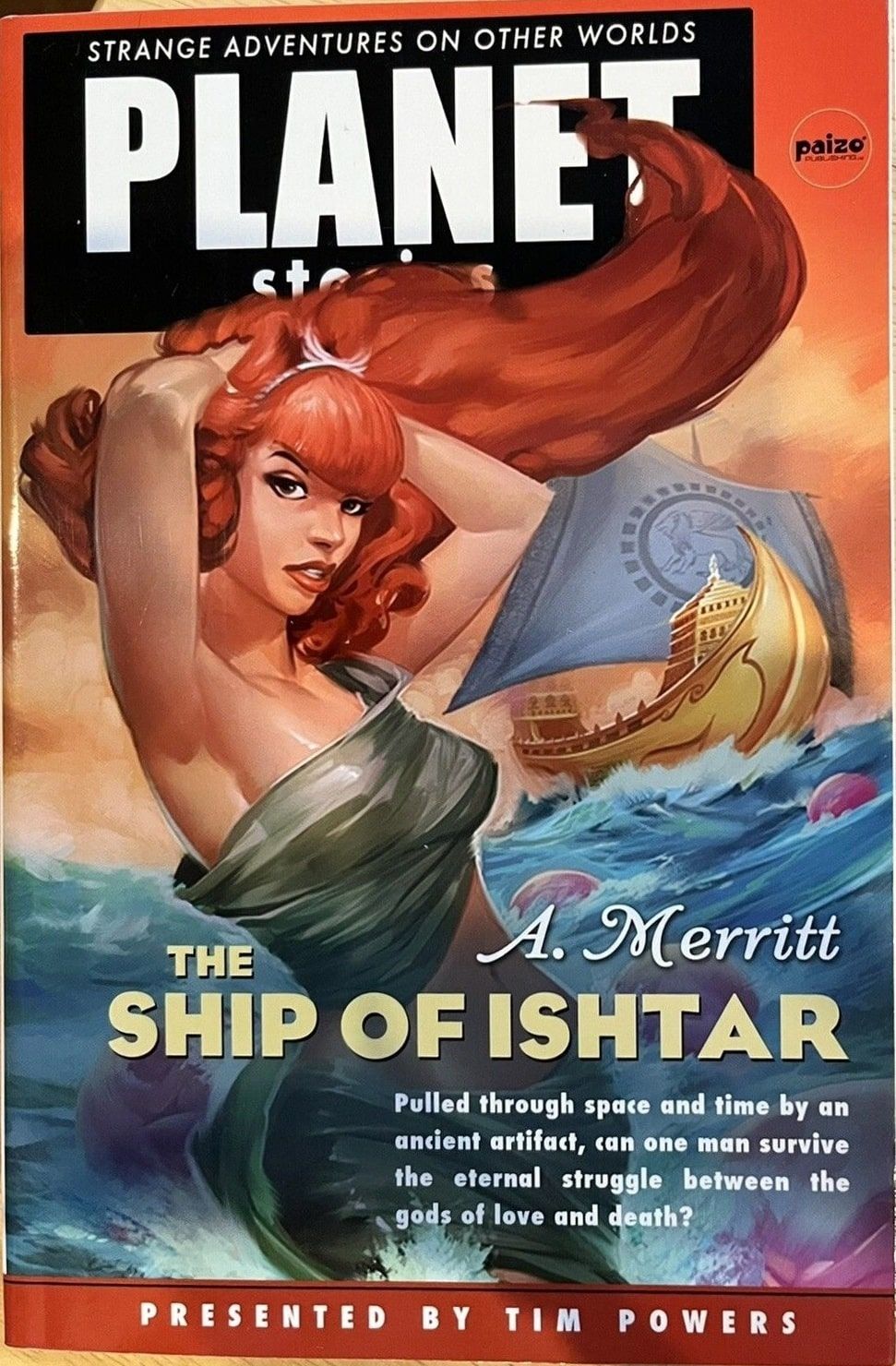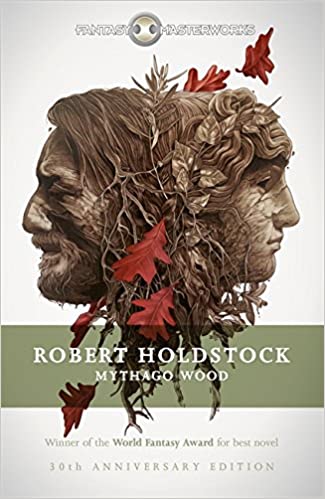Mythago Wood
It is a place where myths become true. No. It is a place where myths are more than true; a place where the myths have power and you have none. The effect is a diminution of the self in the face of something older, vaster, and stranger.

Mythago Wood was recently recommended to me by my Twitter mutual HMS Reepicheep. I had never heard of Mythago Wood or Robert Holdstock, but I'm more than willing to give something a go when it comes from a trusted source. In my experience, there are more good books out there than can easily be read by one person, so it's important to compare notes with like-minded readers to find truly excellent ones.
Mythago Wood is a truly excellent work, and I enjoyed it immensely. Holdstock's work is a throwback to an earlier kind of fantasy, before magic as technology became quite so entrenched. The magic to be found within Mythago Wood is wild, unpredictable, untamed. You should read it, so your narrow pre-conceptions of what fantasy can be will be shattered.

To enter into Ryhope Wood, the small stand of ancient woods lying before the narrator's childhood home, is to leave behind the world of Law and enter into the realm of Chaos. Within, time and space are no longer regular or predictable. While this property is quite hostile to the style of life we Faustians have built for ourselves, it provides a refuge for older cultures and peoples that have been displaced.
It is a place where myths become true. No. It is a place where myths are more than true; a place where the myths have power and you have none. The effect is a diminution of the self in the face of something older, vaster, and stranger. To travel into the Wood is to lose something of yourself, and encounter things beyond your wildest dreams.
The buildup to this is fairly slow. The first half of the book has a horror feel, one of boundaries being transgressed and the consequences thereunto. The father's obsession with the wood, and the simultaneous unraveling of his family and his mind. The way in which his obsession is passed to his sons, despite their unease with their father's erratic behavior and the way their father attempts to squirrel away his notes and diaries. The tension rises to a nearly unbelievable pitch, but at a painfully slow rate.
And then we finally are initiated into the mystery of the wood itself, and the novel abruptly switches gears into a fantastic adventure in a world were myth has become real and the protagonist is now acting out a part in a tale as old as time, falling into a role predestined for him. The Wood appears very different from the inside than the outside.

While I do say that Mythago Wood is a throwback to an earlier kind of fantasy, it is also modernist in its own way. I'm using that term in its technical sense, referring to the art styles that arose in the late nineteenth and early twentieth centuries in response to the Second Industrial Revolution.
In this sense, Tolkien and his most famous work are modernist. Neither Tolkien himself nor The Lord of the Rings are modernist in their convictions, but rather in style. The lack of explicit religion and the way the book grapples with the devastation of industrialization and industrial war are modernist.

Mythago Wood also has a lack of explicit religion, but in this case I think Holdstock was going for a re-enchantment of nature via Celtic myth. The book is also incredibly lonely. The protagonist does find a kindred spirit in the book who accompanies him into the Wood, but each of them is hesitant and isolated from the other, pursuing their own private goals for entering into the Wood in temporary alliance.
The anomie and isolation of modernity are major themes of the book, and especially the way in which men who came back from total war found that they no longer had a place in the world. The Wood offers an escape from the unbearable burdens of modernity and the perceived rigidity of social roles within Faustian civilization.
This is in contrast to the popular adventure fantasy of the late nineteenth and early twentieth century, which often had strong themes of brotherhood and camaraderie while also looking for an escape from the mundane. The Moon Pool or Dracula had collective protagonists, teams or parties with a common goal and real trust and love. It can be a little jarring to read these books now, because this is absent from contemporary life. Modernism as a movement attempted to artistically treat the evaporation of this social solidarity in our day-to-day lives, and so I regard Mythago Wood as a modernist work in this sense.
Mythago Wood resides in the same intersection of mythology and psychology as Tim Powers' Last Call (1992) and Neil Gaiman's American Gods (2001). Each author took the idea of myth intruding into the modern world in an entirely different direction. Powers chose to update the Grail quest for the current day, Gaiman wrote the most straightforward adventure story, with the gods as bewildered and beset by modernity as we are, while Holdstock tried to hearken back to the pre-Christian past.

You might usefully compare and contrast Holdstock's effort here to another A. Merritt book, The Ship of Ishtar. Tim Powers' introduction to the Paizo edition said that Merritt had written "a genuinely pagan book, one that didn't simply deal with, but assumed, the pre-Christian fatalist dualism, with its particular loyalties and indifferent cruelties."
Mythago Wood also embraces pagan fatalism, but with a kind of contemporary rootlessness that feels hollow and unsatisfying in comparison to The Ship of Ishtar, but is in line with the mood of the time when it was written. Writing nearly sixty years earlier, Merritt's protagonist, scarred from war and out-of-place back home, finds both fruitful love and abiding friendship in a band of merry fellows that he assembles once he has traveled to another world. Holdstock's protagonist, similarly situated with regards to the Second World War instead of the First, finds survivor's guilt and solitude instead. It is Bowling Alone in fictional form.
This book used to be much better known. For example, in 1998 Locus ran a poll for All-Time Best Fantasy Novel before 1990, and Mythago Wood came in number 25 in a crowded field. But then again, how many other authors on that list have been read by, or are even vaguely known to, the kind of reader who likes A Song of Ice and Fire?
Mythago Wood might be a good option for broadening the horizons of those readers.

With Both Hands Classics | My other book reviews | Reading Log
Mini-reviews



Comments ()